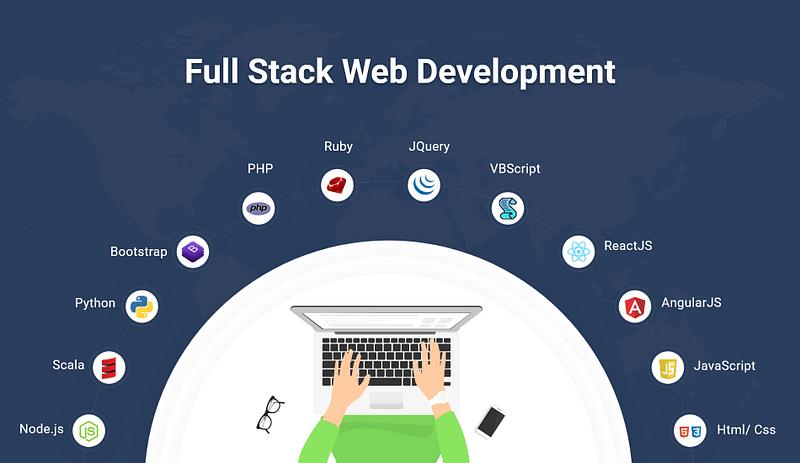Why Full Stack Development Matters Today

Full Stack Development has become a crucial element in today’s tech landscape. It involves handling both the front-end and back-end of web applications, ensuring a seamless and effective user experience. Companies are increasingly turning to Full Stack Development Services to streamline their projects and enhance their digital offerings. This comprehensive approach allows developers to manage every aspect of a web application, from the user interface to the server-side logic. In this blog, we’ll explore why Full Stack Development is so important and how it benefits modern businesses.
What is Full Stack Development?
Full Stack Development refers to the ability to work on both the front-end and back-end of a web application. The front-end is what users interact with directly, including the design, layout, and interactive elements. The back-end, on the other hand, deals with the server-side operations, databases, and application logic. A full stack developer is skilled in both areas, making them versatile and valuable in the tech industry.
Benefits of Full Stack Development
1. Streamlined Development Process
Having a developer who can handle both the front-end and back-end reduces the need for multiple specialists. This streamlining can significantly speed up the development process. Full stack developers can move seamlessly between different parts of the project, making adjustments and improvements quickly and efficiently.
2. Cost-Effective Solution
By hiring a full stack developer, businesses can save on costs associated with hiring separate developers for the front-end and back-end. This can be particularly advantageous for small to medium-sized enterprises that need to manage their budgets carefully. A single developer with expertise in both areas can deliver the same quality of work as a team of specialists, but at a lower cost.
3. Improved Communication
When the same developer works on both the front-end and back-end, communication barriers between different team members are eliminated. This leads to a more cohesive development process and ensures that all aspects of the project are aligned with the overall vision. It also reduces the chances of miscommunication and errors, which can occur when different teams handle separate parts of the project.
4. Faster Problem Solving
Full stack developers are equipped to handle a wide range of issues that may arise during development. They can quickly diagnose and address problems that span both the front-end and back-end. This ability to troubleshoot issues from end to end speeds up the resolution process and ensures that the final product meets quality standards.
5. Versatility and Flexibility
Full stack developers possess a broad skill set that makes them adaptable to various project requirements. Their ability to work on multiple aspects of a project means they can easily switch between tasks and take on different roles as needed. This flexibility is particularly valuable in dynamic development environments where project scopes and requirements can change frequently.
How Full Stack Development Drives Innovation
Full Stack Development is not just about efficiency; it also drives innovation. By having a comprehensive understanding of both the front-end and back-end, developers are better equipped to integrate new technologies and create innovative solutions. They can implement advanced features and functionalities that enhance the user experience and set their projects apart from the competition.
Conclusion
Full Stack Development plays a pivotal role in today’s technology-driven world. Its ability to streamline processes, reduce costs, and enhance communication makes it an invaluable asset for businesses of all sizes. As technology continues to evolve, the demand for skilled full stack developers will likely grow, making this a key area of focus for companies aiming to stay ahead in the digital landscape.
FAQs
1. What is the role of a full stack developer?
A full stack developer works on both the front-end and back-end of web applications. They handle everything from user interface design to server-side logic and database management.
2. Why should businesses consider Full Stack Development Services?
Full Stack Development Services offer a comprehensive approach to web development, reducing costs, streamlining processes, and improving communication between different aspects of a project.
3. What skills are required for full stack development?
Key skills include proficiency in front-end technologies (like HTML, CSS, JavaScript), back-end technologies (like Node.js, Python, Ruby), and knowledge of databases and server management.
4. How does Full Stack Development impact project timelines?
Full Stack Development can speed up project timelines by reducing the need for multiple developers and minimizing communication barriers between different parts of the project.
5. Can full stack developers work on mobile applications?
Yes, full stack developers can also work on mobile applications, especially if they have experience with relevant technologies and frameworks for mobile development.

Comments